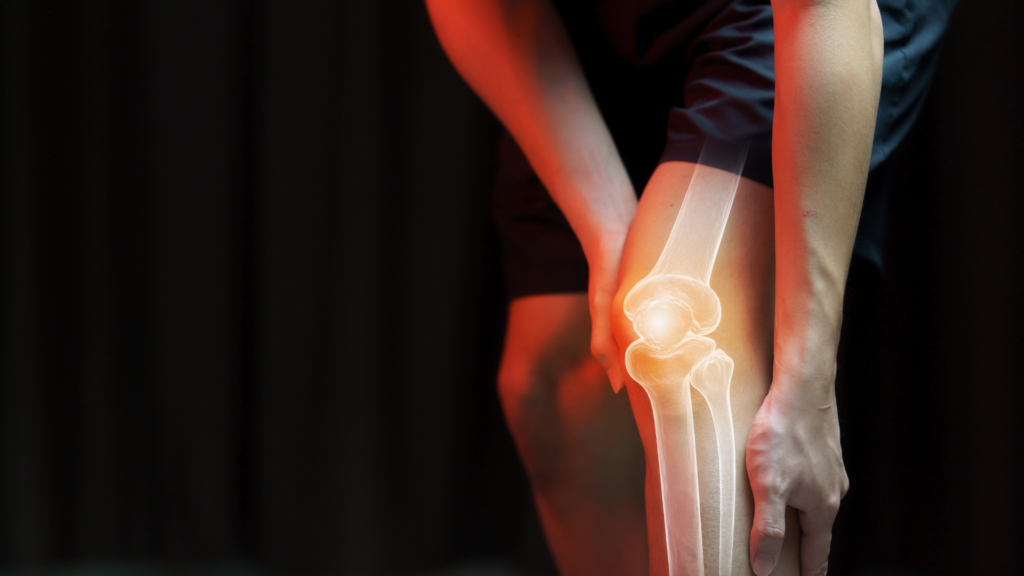
With the drop in temperature, there is a common complaint of rising joint problems. The aggravated vata dosha is the key factor for rising joint pain during winter. The problem becomes severe in aged people or in those with pre-existing health issues. The impact of winters on joint pain may vary from person to person.
The imbalance of doshas is a key factor for various health problems. The vata dosha is responsible for all types of movement in and within the body. The disturbance of vata level in the body causes pain in the joints. Joint pain occurs when there is limited flexibility of muscles and tissues or may also result from viral infections.
Let us understand some of the common key factors that can increase the joint problem during winter.
- Deficiency of vitamin D
Vitamin D is crucial for bone health. During winter low or no exposure to sunlight lowers vitamin D levels in the body. As a result, there may occur stiffness and discomfort in joints.
- Physically less active
Winter may pull you to hibernate and this can be one of the contributing factors to joint pain. Less movement, and being less physically active can impact the flexibility of the joints.
- Low temperature
Heat expands and cold contracts. Hence winters can make the muscles stiff and cause pain in movement.
- Less water intake
There is less water intake during winter as a result the body may undergo dehydration. Staying hydrated is important for joint health and less water intake can cause joint pain.
- Winter blues
The impact of winter on moods can indirectly affect the way a person perceives pain.
Ayurveda has a plethora of herbal remedies that can relieve you from joint pain during winter. Nevertheless, natural ways can be the best route to take for the smooth journey of joints during winter.
Best foods, spices, and herbs for bone health
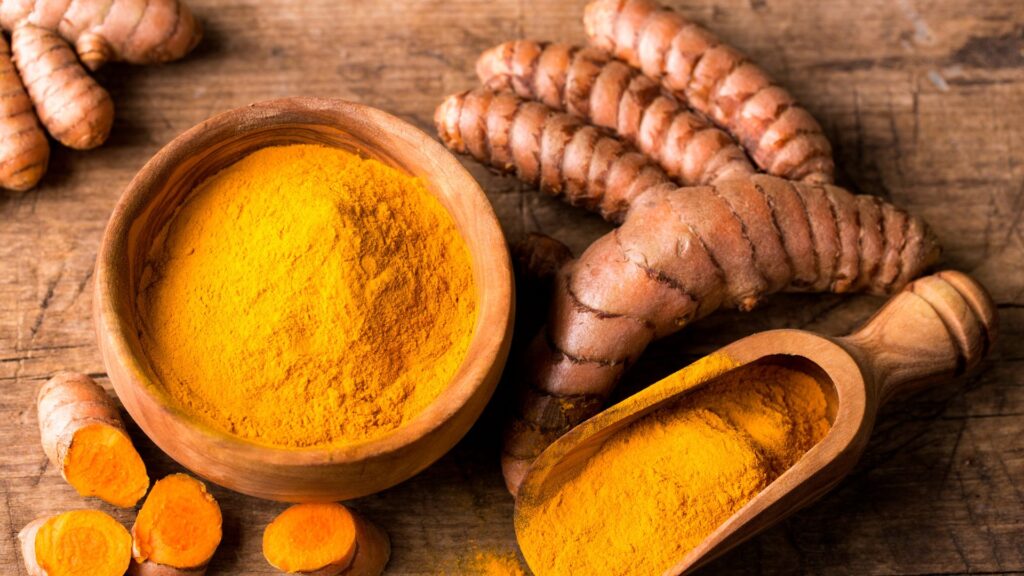
Turmeric
Curcumin in turmeric is a great antioxidant and anti-inflammatory. These properties can help improve immunity and support speedy recovery from ailments. People with preexisting joint problems especially arthritis can avail the benefits from the intake of high-quality curcumin extracts.
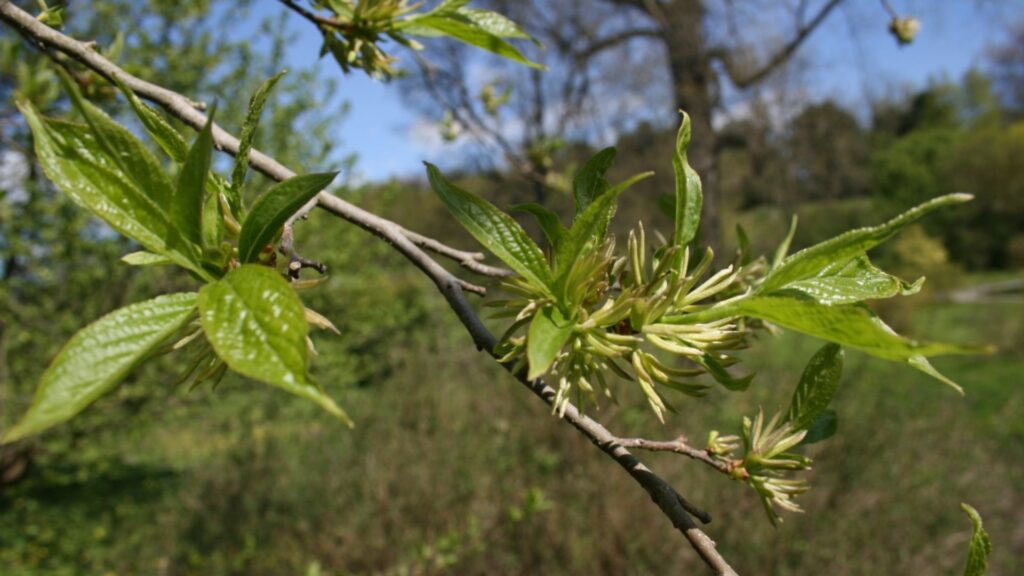
Eucommia (hardy rubber tree)
The bioactive chemicals in eucommia are beneficial for various health problems which also include bone health.

Chamomile
Chamomile extracts can help improve the function of bone-building cells. It can increase bone density and may suppress the symptoms of bone inflammation.
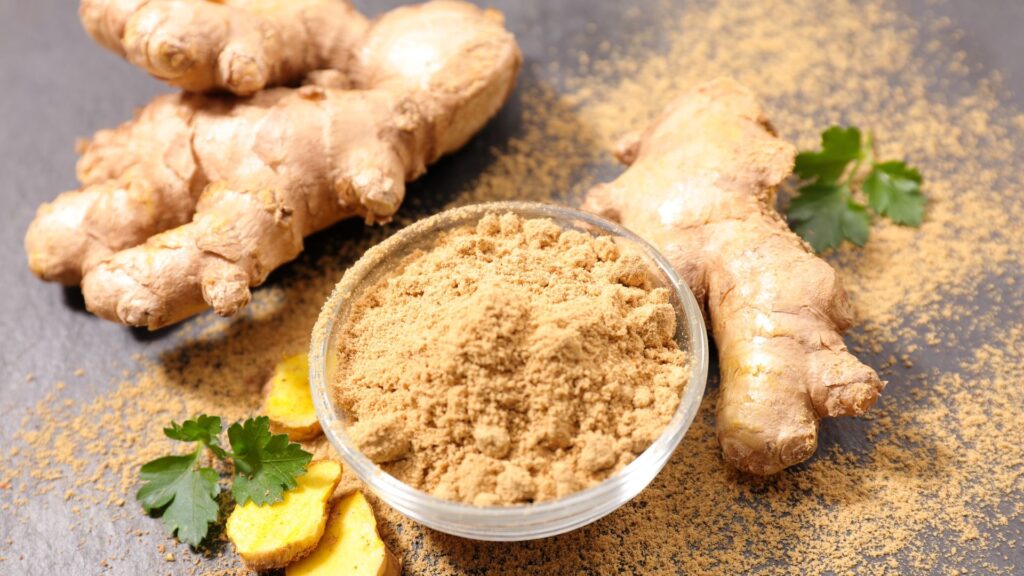
Ginger
Certain hormones in the body may trigger inflammation in the bones. The anti-inflammatory properties of the ginger can help calm or prevent the inflammatory hormones. Ginger, being a common household winter product supports digestion. A healthy digestive system improves nutrient absorption which is essential for bone health.
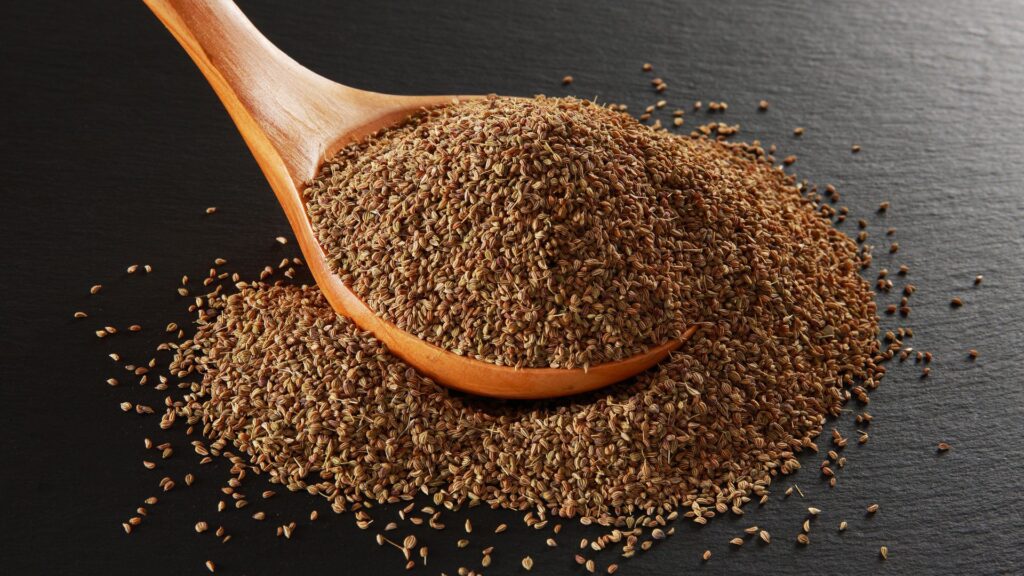
Ajwain (Carom seeds)
Apart from adding aroma and flavor to the foods, ajwain has various health benefits. A common spice in all Indian kitchens, ajwain is well known to support the digestive system. Being rich in calcium, iron, and phosphorus, it helps promote bone health.
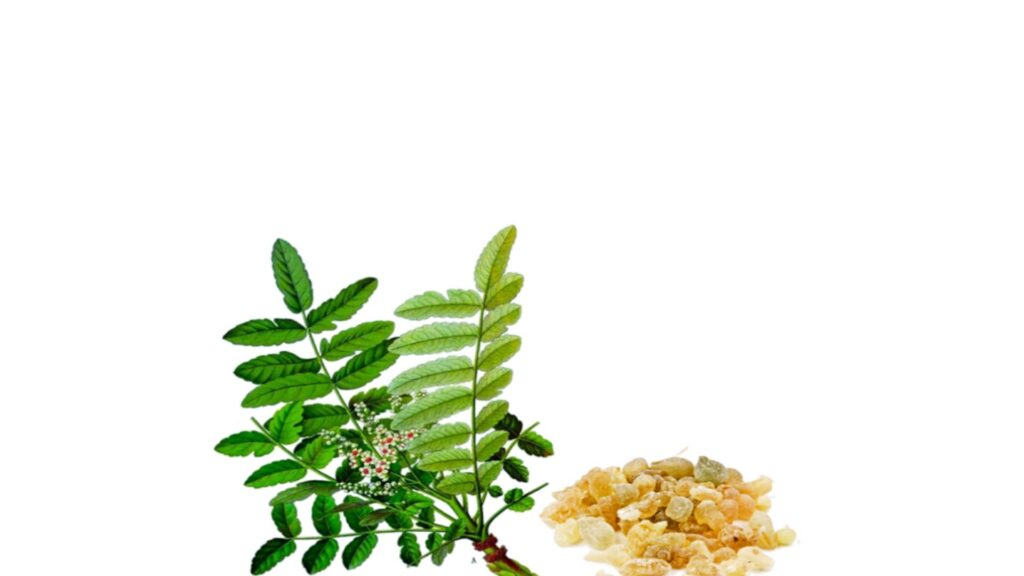
Shallaki (Boswellia serata)
The therapeutic property of shallaki has been well known for ages. The anti-inflammatory property of shallaki is a blessing for those suffering from joint pain. It can be consumed orally and/or may be used as an external application.
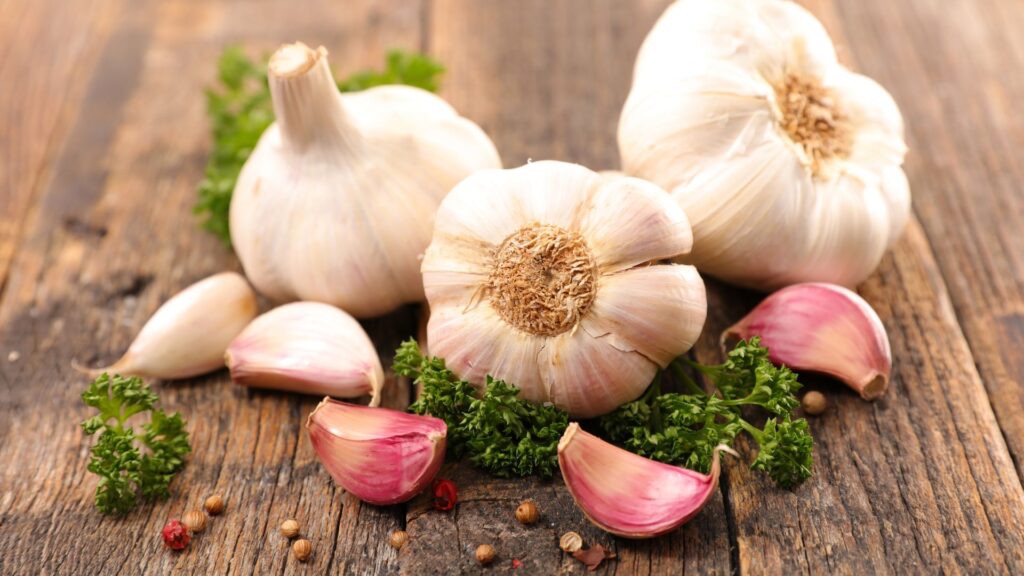
Garlic
Gralic has various health benefits that include bone health, especially in women with menopause. Garlic improves the level of estrogen which is low in menopausal women. The hormone estrogen helps improve bone health and prevent bone problems such as osteoarthritis.
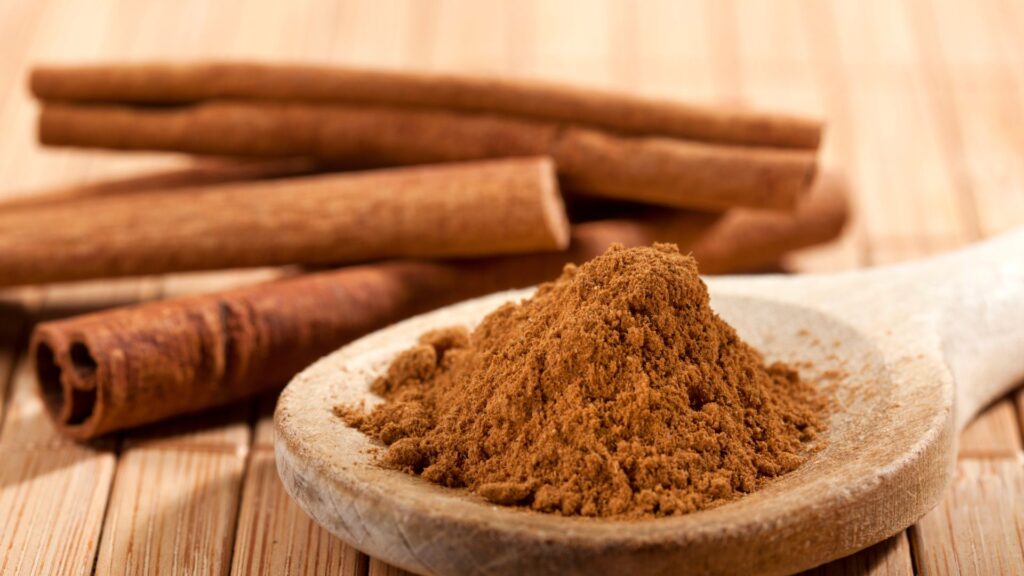
Cinnamon
Cinnamon has been used since ancient times, and its health benefits are well known for ages. Cinnamon reduces the degeneration of bones and prevents bone loss.
Consume snigdha foods
Unctuous foods are recommended to combat bone health problems in winter. Foods with snigdha quality include ghee, tailam (oil), vasa (muscle fat), majja (bone marrow), tila (sesame seeds), etc. Consuming snigdha foods prevents dryness and improves the digestive system.
Ayurvedic therapies
Snehan (Oil Therapy)
Our body is like a machinery and likewise, it needs oil to lubricate the muscles and tissues. Apart from the external application of oil, internal lubrication paves the way for the smooth removal of toxins from the body.
Medicated oil is used to massage the body. Commonly used medicated oils for bone health include mahanarayana tailam, dashmoola, etc. Gentle massage with such medicated oil can help balance the three doshas. Snehan helps combat osteoporosis. Along with snehan it is also recommended to consume oil or ghee for internal lubrication.
Basti (enema)
Basti is known to cure problems related to asthi (bone). It helps calm the aggravated vata dosha that is known to cause bone disorders. Basti helps clean the colon and eliminate toxins from the body.
Self-care tips such as keeping yourself active by practicing yoga poses, going out for a walk, meditation, etc can help in the betterment of bone health. Taking adequate rest and eating foods that keep you warm during winter can help improve bone health and prevent bone health problems.
Take Away
There are various ways to take care of bone health. However, the Ayurvedic approach is a wise decision to cure the bone problem and eliminate the root cause of it. Ayurvedic approach along with lifestyle modification can be beneficial to strengthen the bones and muscles. The wisdom of Ayurveda and its effectiveness on bone health has a long-lasting impact that can keep your bones happy forever.
